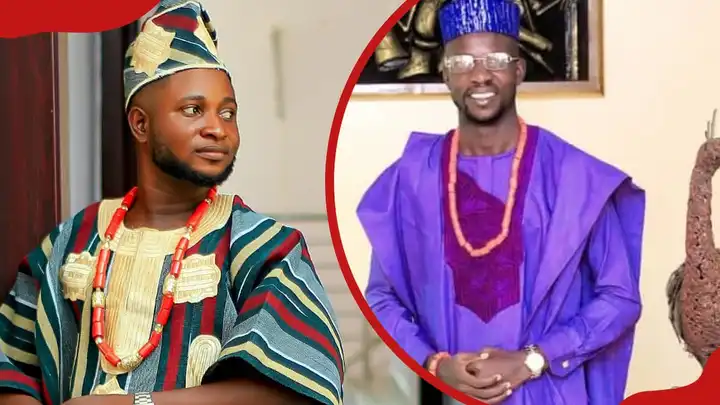BY ERNEST OSOGBUE
The gondola is a flat-bottomed rowing boat, typically propelled by an oar used by a boatman called the gondolier; it is a traditional mode of transportation native to Venice, Italy.
Venice is the capital of Italy’s Veneto region, which is located in the northern part of the country, and the city is made up of groups of small islands separated by canals. This makes the gondola a very convenient means of transportation around central Venice.
Students of literature will also recall that two of William Shakespeare’s iconic works; The Merchant of Venice, and Othello, are set in the city of Venice.
Back home here in Nigeria on the streets of Lagos, but more especially on the streets of Abuja and Kano, the local forex dealer is wont to pronounce the American dollar as doola, with a long stress on the o sound; this is due to cultural affectation and accent, which we all know are common to second language users.
Sometime in 2018, the current National Chairman of the All Progressives Congress APC, Abdulahi Ganduje, then in his capacity as the Governor of Kano State, was involved in a dollar-stuffing episode.
The publisher of the online newspaper Daily Nigerian, Jaafar Jaafar; had published a set of damaging videos purportedly showing Governor Abdulahi Ganduje stuffing bundles of American dollars into his Agbada, in what Jaafar termed a sting operation to expose the governor and his corruption-riddled contract award system.
Ganduje of course denied the allegations, but not before crafty Nigerians had termed the entire episode ‘the gandoola saga,’ a play on Ganduje’s name, and the American currency.
As is usual in our nation, when allegations are made, they are usually followed by sporadic media outcry, which at the end of the day yields little or nothing.
In this instance however, while we understand that the Economic and Financial Crimes Commission EFCC, is still on the matter, it is believed that the Kano State government is playing hide and seek as to whether to pursue the case or not.
In any case, our interest in the matter is not whether the former governor is guilty or not, bearing in mind that he remains innocent until proven otherwise. Our interest is in the relationship between the gondola as used in Venice and its (sic) anagram gandoola.
Agbada is the favorite dress of most Nigerian politicians, especially those from the north. The outfit however, has its origins in Islam and the Middle East, as worn by the Berbers and Arabs. It first arrived in West Africa at about the 18th century in the Senegambia region, before spreading to other parts of the sub-continent including Nigeria in pre-colonial times through commercial interactions.
In Nigeria the Agbada has transformed into a national dress that everyone wears without distinction as to religion. It is especially significant to those who wield authority and the wealthy. It is impossible to attend a political gathering without at least more than half of the people wearing Agbada. The Agbada has become so popular in Nigeria that despite having their own traditional dresses, on very special occasions, indigenes of the South-South and South-East zones, go out of their way to acquire specially designed Agbada to commemorate such occasions.
All through his administration, President Mohammadu Buhari was a proponent of the Agbada, and wore it regularly. True to type his political appointees eagerly towed the line of their boss, and so the Presidential Villa almost became a venue for Agbada competition. I recall the last few Federal Executive Council meetings chaired by the former president, and how almost everyone was wearing Agbada. From all indications President Tinubu has continued from where Buhari stopped, albeit at a lesser level. President Tinubu seems to prefer the two piece kaftan, and wears the Agbada only sparingly.
Despite President Tinubu not being an Agbada advocate, Agbada is still evident in his government. The Senate President, Godwin Akpabio, the Minister of Health Ibrahim Pate and many others love adorning the outfit. It was however during the Buhari administration that I really started worrying about the Agbada. I was watching the news on television and this shot of Nigerian leaders with almost all of them wearing Agbada, backslapping and smiling at one another, as they posed for a group photo after a supposedly successful meeting. I remembered then that this scenario had played out on numerous occasions in our country since independence. Sir Tafawa Balewa, Chief Obafemi Awolowo, Dr. Nnamdi Azikiwe, Sir Ahmadu Bello, Alhaji Shehu Shagari, Chief Olusegun Obasanjo, etc, all wore Agbada, and yet the challenges confronting the nation remain unresolved. It reminded me that there must be something sinister about the Agbada so much that anyone who wears it, suddenly becomes conscious of his self-importance, and remains oblivious to the needs of others.
I recalled the numerous occasions I had seen people I know wearing Agbada, they seemed to revel in their arrogance as they threw the excess cloth on either side of the dress, first over one shoulder, and then the other. In times past when the Naira was a strong currency, that gesture used to be termed “one thousand five hundred,” a reference to how much it cost to make the dress. Today with the Naira devalued, floundering and fluctuating, that activity no longer represents the cost of the dress, but now represents a form of self-validation and self-adulation to the exclusion of others.
Anytime I see a friend wearing the outfit, the first image that springs to my mind is the image of corruption and lack of productivity. At other times when I encounter the outfit, the image of Abdulahi Ganduje stuffing dollars into his Agbada springs to my mind, and then the entire gandoola episode is rehashed all over in my brain.
I was therefore very excited when Governor Umar Bago of Niger State issued a ban on the wearing of Agbada to the office by Civil Servants. While the governor has since modified his stance on the directive to only apply to those engaged in operational services, it remains evident that the governor, like me, sees Agbada as unproductive attire, and only moderated his directive due to pressure.
While I may not have anything specific against those who like to dress up in Agbada, my perception of the dress in relation to the governance of our country has left me no choice but to loathe the attire. It is cumbersome to wear, and does not allow for free movement to carry out tasks that require urgency, moreover, the corrupt tendencies of our leaders past and present, ultimately taint the Agbada with corruption and laziness.
Recently, I find myself apprehensive anytime I see someone wearing Agbada, and for someone residing in Abuja that is really traumatizing as Agbada seems to be everywhere. I ran to my psychoanalyst to seek help, and he said I was suffering from Agbada Phobia as a result of the gandoola saga, he therefore advised that instead of gandoola, I should try thinking about the gondola anytime I see Agbada, and possibly imagine a trip to Venice. He ended with a final caution that I must never wear Agbada if I were to maintain my sanity. And that, fellow citizens, is why I will never wear Agbada!









